10 Persistent Kennedy Assassination Theories
The Kennedy Assasination
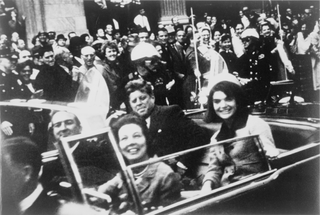
On Nov. 22, 1963, President John F. Kennedy died in Dallas, Texas, the victim of a shot through the head that rung out as his motorcade passed through Dealey Plaza. The spot, marked with a white X, became the birthplace of dozens of conspiracy theories.
The Warren Commission's investigation of the JFK assassination, commissioned by Lyndon B. Johnson in the months following Kennedy's death, determined that the killer was a former U.S. Marine named Lee Harvey Oswald, acting alone, who fired three shots from the Texas School Book Depository along the motorcade route.
But many Americans aren't buying it. Polls suggest that since the assassination, most people disbelieve the "lone gunman" theory. According to Gallup, 52 percent of Americans believed the Kennedy assassination was a conspiracy in the week after the president's death. The number reached 81 percent in both the 1970s and 1990s.
As of 2013, 61 percent think more than one person killed Kennedy. And Kennedy conspiracy beliefs aren't just held by average Joes and Janes: The U.S. House Select Committee on Assassinations argued in 1978 that more than one gunman was present that day, and this month, Secretary of State John Kerry told NBC's "Meet the Press" that he has "serious doubts" that Oswald acted alone.
So if Americans don't think Oswald acted alone, whom do they blame for Kennedy's death? Here is a sampling of popular Kennedy assassination conspiracy theories.
The Mafia
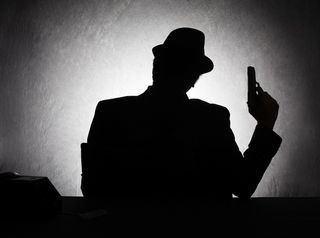
A few days before the 50th anniversary of the Kennedy assassination, 13 percent of Americans told Gallup pollsters they believed the Mafia was behind the killing.
The Mafia conspiracy theory typically centers on New Orleans mobster Carlos Marcello, who was deported to Guatemala after Kennedy came to office and charged his brother, Robert, with tackling organized crime as the U.S. Attorney General. After Marcello made his way back to the United States (there's an apocryphal story of him slogging through the jungle in alligator shoes), he allegedly made threats against the president. He also allegedly made a jailhouse confession of the crime to an FBI informant. Mafia conspiracy believers point to Lee Harvey Oswald's trip to New Orleans prior to the assassination, as well as to the mob ties of Oswald's killer Jack Ruby. [Infographic: How Does the Mob Work?]
The government
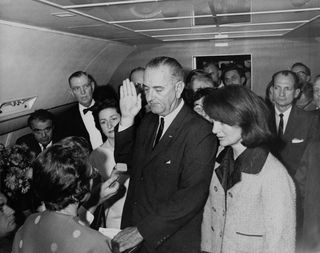
Or did the government do it? Thirteen percent of Kennedy conspiracy believers think so, according to Gallup. It's not entirely clear who these believers consider to be "the government," as a number of theories involve government agents.
One popular accusation, cited by 1 percent of Gallup respondents: Lyndon B. Johnson, Kennedy's vice president, ordered the deed. According to the book "The Man Who Killed Kennedy: The Case Against LBJ" (Skyhorse Publishing, 2013) by libertarian political activist Roger Stone, Kennedy's successor murdered not only Kennedy, but also several others on his path to political power. Most believers of this theory say that LBJ had the motivation — a desire for the presidency — and that he worked with a shadowy cabal of co-conspirators. Supposedly, Johnson hated Kennedy and feared being dropped from the 1964 presidential campaign ticket.
"It's very important to understand that Johnson was merely the linchpin of the conspiracy that I believe involved the CIA," Stone told the Voice of Russia.
The CIA
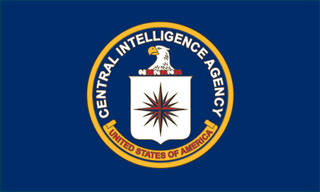
Ah, the CIA! Seven percent of conspiracy-loving Americans blame the Central Intelligence Agency for Kennedy's death. The theory was perhaps even more popular in the 1960s and 1970s, as Americans became aware that the CIA really had plotted to assassinate Vietnam's president Ngo Dinh Diem (successfully) and Cuba's Fidel Castro (unsuccessfully). After the failed Bay of Pigs Invasion of Cuba in 1961, Kennedy and the CIA were on rough terms, leading conspiracy-minded individuals to suspect the CIA retaliated by having the president killed.
CIA conspiracies often overlap with mob conspiracies because of revelations that the agency worked with organized crime on its Castro schemes.
Fidel Castro
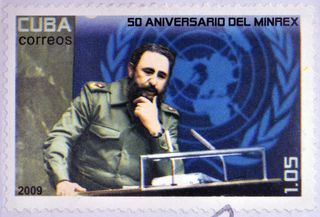
But what about Castro himself? He certainly had reason to be unhappy with the Kennedy administration: The CIA was plotting to kill him, after all, and had trained Cuban exiles to attempt to overthrow his communist government in the fumbled Bay of Pigs Invasion.
LBJ himself subscribed to this conspiracy theory. On two separate occasions, in 1968 and 1969, he said in interviews that he thought Castro had been behind the assassination. For his part, Castro denied the allegations, calling the idea "absolute insanity" in a 1977 interview. Having the U.S. president killed would have been too dangerous for Cuba, as the United States would surely retaliate, Castro said.
Nevertheless, today, 5 percent of Americans believe Cuba was behind the assassination, Gallup found.
Anti-Castro Cubans
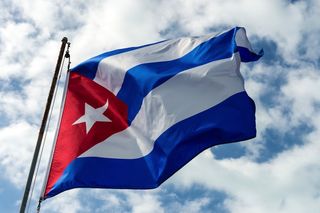
While some conspiracy theorists implicate Castro in Kennedy's death, others blame Castro's enemies. (A lot of people had possible motives, it seems.)
Cuban exiles who hoped to reclaim their homeland from Castro's communist government had their hopes dashed when the CIA-backed Bay of Pigs Invasion failed. Some blamed Kennedy for botching the operation. The House Select Committee on Assassinations spurred on this theory in their 1979 report, which said that individual angry Cuban exiles may have been in on the plot.
Political Components
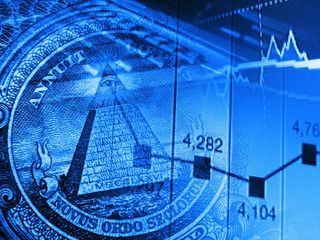
Five percent of Americans who believe in a JFK conspiracy today think unnamed political opponents had Kennedy shot, and another 5 percent say unknown special interest groups were responsible. Some are more specific, according to Gallup's recent polling: Two percent blame big business or Big Oil (Dallas being in petroleum-loving Texas); 1 percent say labor unions or Teamsters were behind the assassination, and another 1 percent say right-wing political operatives are to blame. Three percent blame the Ku Klux Klan or other racist groups.
In 2010, the KKK theory got a boost from a former FBI agent named Don Adams, who claimed that Florida radical Joseph Adams Milteer told an informant in 1963 that a plot to kill the president was in the works. Like just about everyone with an opinion on the JFK assassination, Adams has written a book about his theory, "From an Office Building with a High-Powered Rifle: One FBI Agent's View of the JFK Assassination" (Trine Day, 2012).
On the other hand, a full perusal of Milteer's allegedly prescient remarks about the shooting reveals his "foreknowledge" may have been more bluster than not: Milteer talks of presidential look-alikes and an assassination at the White House, and his description of a possible sniper assassination plot is vague and generic. [5 Milestones in Gun Control History]
Russia
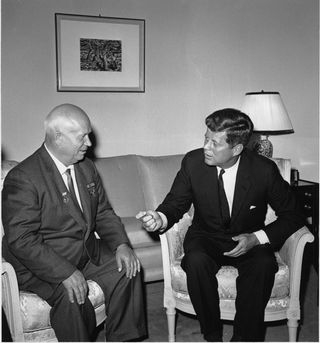
Lee Harvey Oswald was a defector to the Soviet Union. He lived in the USSR from 1959 to 1962. According to some conspiracy believers, he was brainwashed or simply recruited to assassinate the president during this time.
The Soviet conspiracy's motivation is said to be Nikita Khrushchev's anger at having to remove weapons from Cuba in the wake of the Cuban Missile Crisis of 1962. In 2007, Lt. Gen. Ion Mihai Pacepa, a defector from Romania, wrote a book claiming the KGB plotted to assassinate a number of world leaders, including Kennedy. Adding to the intrigue, Oswald visited the Russian embassy in Mexico in the weeks leading up to the assassination.
Of course, an attack traced back to Russia would have risked nuclear war, leading some skeptics to dump this theory.
The military-industrial complex
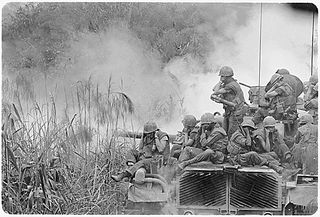
Could the war in Vietnam have indirectly caused Kennedy's death? One percent of American conspiracy believers think so, Gallup reports.
According to the military-industrial complex conspiracy theory, Kennedy intended to pull the U.S. military out of Vietnam. Shadowy forces in the military, resenting the impending decision, had him killed. Oliver Stone's popular conspiracy film "JFK" (1991) pushes this theory, arguing that Kennedy's assassination was a military coup designed to put the war-friendly Johnson in office. [10 Most Outrageous Military Experiments]
After JFK's death, however, his brother Robert told reporters that Kennedy had no intention of pulling out of Vietnam, and historians are uncertain how the Vietnam War would have turned out with Kennedy at the helm.
The Secret Service
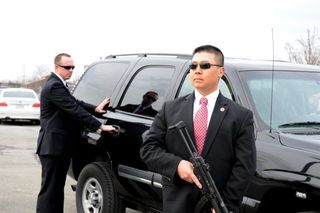
It's the ultimate inside job: The Secret Service, tasked with protecting the president, ensures his death instead ... the theory goes.
About 1 percent of conspiracy believers polled by Gallup in the run-up to the 50th anniversary of the assassination blamed the Secret Service for killing Kennedy. According to this theory, anti-Kennedy agents in the Service had no interest in protecting him from shots. Conspiracy theorists also find it suspicious that certain security measures, such as agents near the rear bumper of the car, weren't in place that day in Dallas.
Both the Warren Commission and the House Select Committee on Assassinations cleared the Secret Service, but the House committee determined the agents were deficient in their duties.
I dunno, just somebody
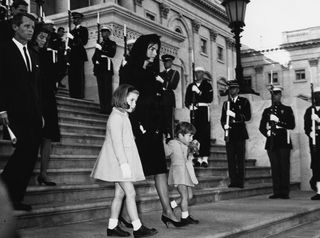
Forty percent of Americans who blamed a conspiracy for killing Kennedy had no particular sense of who was behind the plot, according to Gallup's November 2013 poll. This large number of uncertain people may reflect a few factors. Dissatisfaction with the official story is probably one. The difficulty of sifting through dozens of potentially plausible villains is likely another.
A third factor, however, may simply be that the JFK assassination has taken on a life of its own. Conspiracy theory chatter begets conspiracy theory books begets conspiracy theory movies begets more chatter, books and movies debunking all of the above. Eventually, the idea that something secretive happened becomes almost enshrined in the culture.
"If you're living in this culture, you know it's not unreasonable for you to say 'well, everyone's talking about it,'" University of Miami political scientist Joe Uscinski told LiveScience. "And a lot of our beliefs are based on 'Everyone's talking about it.'"
Sign up for the Live Science daily newsletter now
Get the world’s most fascinating discoveries delivered straight to your inbox.

Stephanie Pappas is a contributing writer for Live Science, covering topics ranging from geoscience to archaeology to the human brain and behavior. She was previously a senior writer for Live Science but is now a freelancer based in Denver, Colorado, and regularly contributes to Scientific American and The Monitor, the monthly magazine of the American Psychological Association. Stephanie received a bachelor's degree in psychology from the University of South Carolina and a graduate certificate in science communication from the University of California, Santa Cruz.
